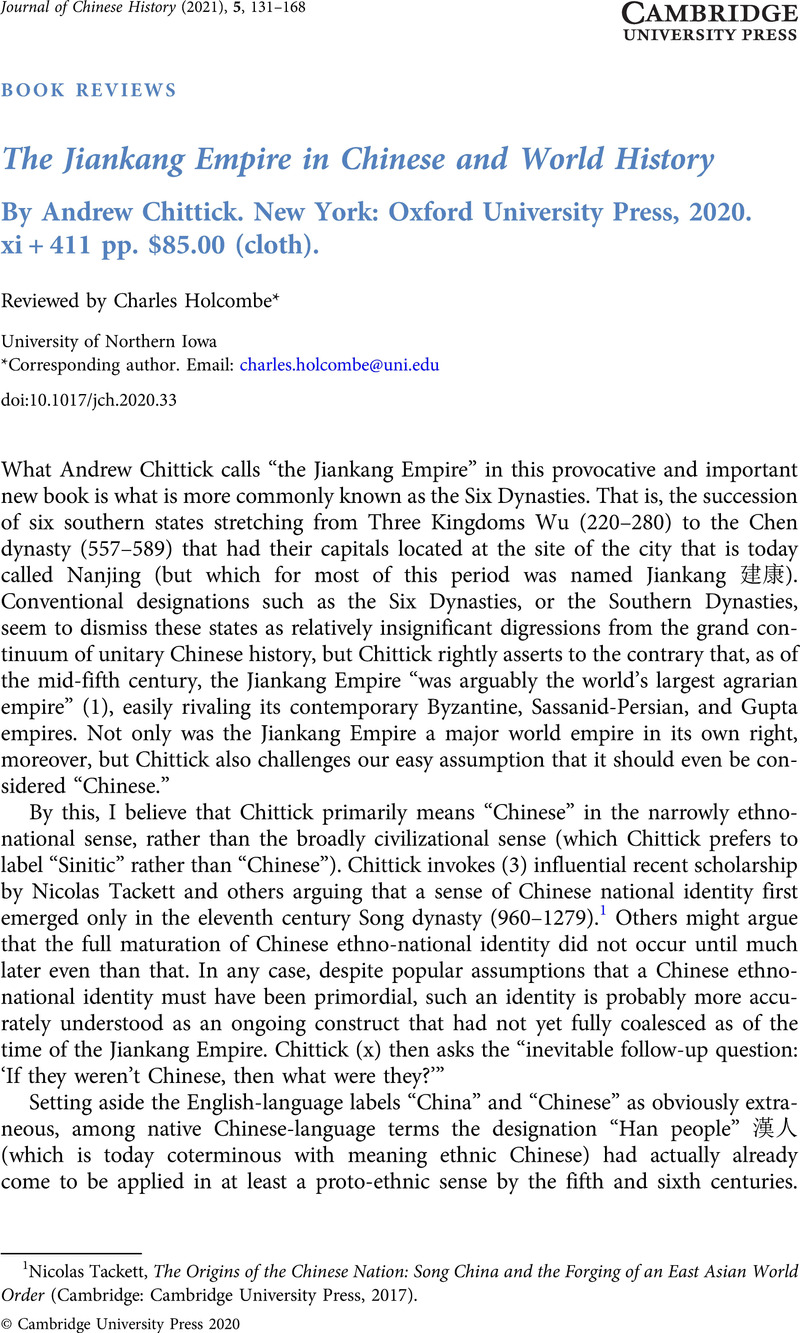No CrossRef data available.
Published online by Cambridge University Press: 23 July 2020

1 Tackett, Nicolas, The Origins of the Chinese Nation: Song China and the Forging of an East Asian World Order (Cambridge: Cambridge University Press, 2017)CrossRefGoogle Scholar.
2 Chittick favors using the reconstructed native-language pronunciation Särbi over the modern Mandarin pronunciation Xianbei.
3 Zizhi tongjian, jinzhu 資治通鑑, 今註, comp. by Sima Guang 司馬光 (1084 CE; Taibei: Taiwan shangwu yinshuguan, 1966), 84.12.
4 Shishuo xinyu, jiaojian 世說新語, 校箋, comp. by Liu Yiqing 劉義慶 (403–444 CE), modern ed. by Xu Zhen'e 徐震堮 (Hong Kong: Zhonghua shuju, 1987), 2, number 102, p. 87.
5 Lieberman, Victor, Strange Parallels: Southeast Asia in Global Context, c. 800–1830; Vol. 2, Mainland Mirrors: Europe, Japan, China, South Asia, and the Islands (Cambridge: Cambridge University Press, 2009)CrossRefGoogle Scholar.
6 Bei shi 北史, comp. by Li Yanshou 李延壽 (659 CE; Beijing: Zhonghua shuju, 1974), 31.1147.
7 Bei shi, 100.3343.
8 Hong ming ji 弘明集, comp. by Seng You (ca. 515–518 CE; Taibei: Taiwan Zhonghua shuju, 1983), 14.9b.
9 See Holcombe, Charles, “The Last Lord of the South: Chen Houzhu (r. 583–589) and the Reunification of China,” Early Medieval China 12 (2006), 102–6, 115Google Scholar.